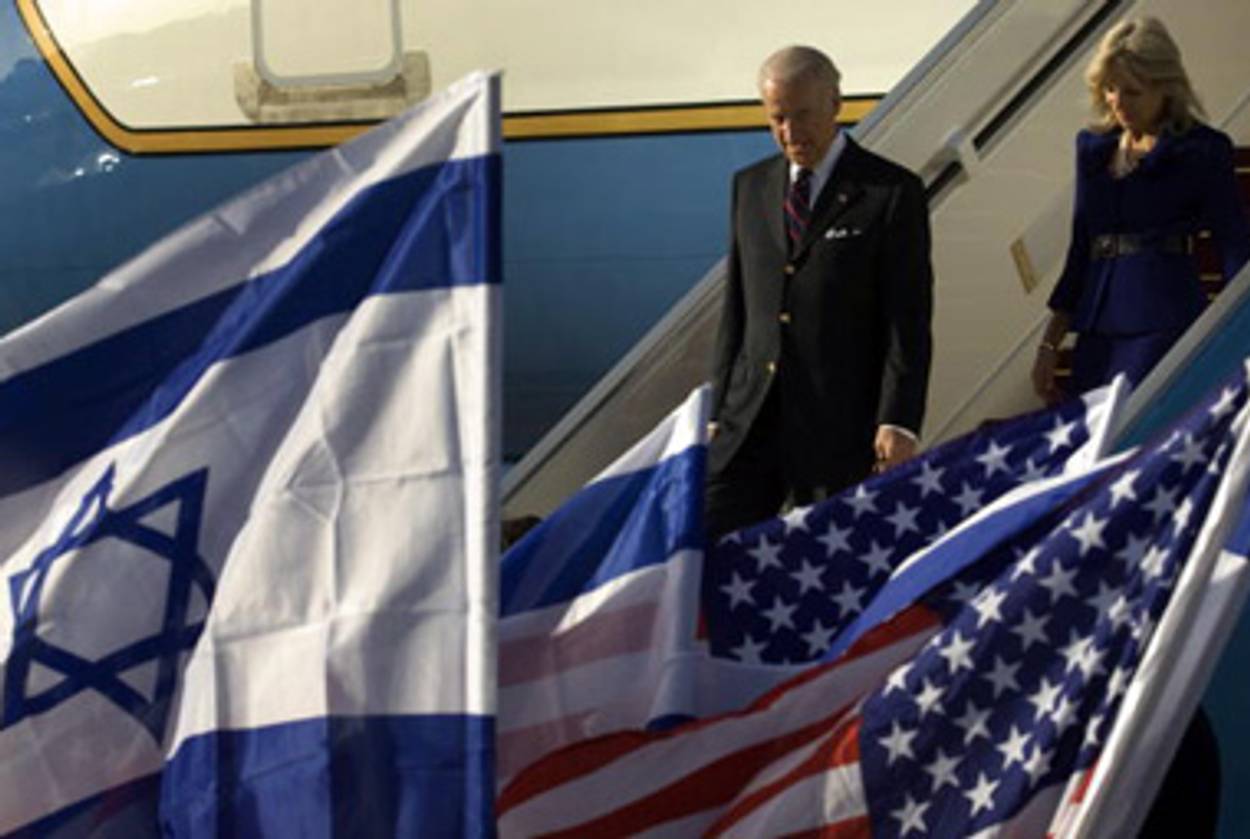Biden Brings Hopes and High Stakes to Israel
The ‘proximity talks,’ and what happens if they fail




Now that Vice President Joe Biden has touched down in Israel (and the Israeli military’s chief-of-staff has landed in Washington, D.C.), it’s time to take a slightly closer look at those indirect peace talks that, ostensibly, are about to kick off.
The idea: U.S. envoy George Mitchell will shuttle between the Israelis and Palestinians, with the ultimate goal of getting the two sides in the same room. Both the Arab League and the Palestine Liberation Organization okayed the talks despite the fact that Israel has not agreed to a full settlement freeze in the West Bank and East Jerusalem—something Palestinian President Mahmoud Abbas has previously insisted were a precondition to negotiations. (Ah, but these are only indirect peace negotiations, so he hasn’t technically backed down from that! Now perhaps you see the appeal of these “proximity talks.”)
Meanwhile, a good deal of the purpose behind Biden’s trip is to reassure Israel’s leadership and people that the United States is still fundamentally behind them—this after a year during which Israel has felt President Barack Obama has been unsympathetic to its point of view; and this after a leaked Foreign Ministry report predicting the administration will take the Palestinian side in the talks and will be too focused on November’s midterm elections to devote too many resources to the Mideast anyway.
Biden seems perfect for this mission: unlike Obama, he’s been on the political scene for almost four decades, and for the more prominent part of his career has been a powerful figure on the Senate Foreign Relations Committee; through all that time, he has been seen as a friend to Israel.
There is real urgency behind these talks. The Palestinians’ West Bank leadership may be unwilling to give a bilateral, two-state deal another chance should this latest attempt fall apart. Chief Palestinian negotiator Saeb Erekat was pretty explicit with Israeli radio, announcing that after this, they would revert to calls for a single, bi-national state (more encouragingly, he said Palestinians were ready to give up parts of the West Bank as long as what they end up with is West Bank-sized).
Looming, also, are the plans of revered Palestinian Prime Minister Salam Fayyad: currently engaged in an ambitious and, so far, not unsuccessful campaign of state-building in the West Bank, Fayyad’s eventual hope is to build enough of a functioning government and society that, in a year or two’s time, the West Bank leadership is ready to declare independence and dare the world not to recognize it.
Palestinian insistence on a one-state solution, and a unilateral declaration of nationhood without border issues (to say nothing of Gaza) resolved: I just named two things Israel emphatically does not wish to see happen. It’s becoming clear whom the stakes of these nascent talks might be higher for.
Biden Visits Israel to Restart Peace Talks [NYT]
As Biden Heads to Israel, Plans for Proximity Talks Advancing [Laura Rozen]
Secret Israeli Report: U.S. Cozying Up to Palestinians [Haaretz]
Salam Fayyad: The Palestinian With a Plan for Statehood [JTA]
Marc Tracy is a staff writer at The New Republic, and was previously a staff writer at Tablet. He tweets @marcatracy.